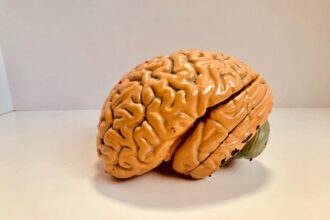Consciousness is a multifaceted phenomenon that has intrigued philosophers, scientists, and thinkers for centuries. As you delve into the realms of science, you may find yourself grappling with the complexities of consciousness and its implications for understanding the universe. At its core, consciousness encompasses awareness, perception, and the subjective experience of being alive.
It raises profound questions about the nature of reality, the self, and the very fabric of existence. In the scientific arena, consciousness is not merely a topic of philosophical debate; it is a critical element that influences how you interpret data, formulate hypotheses, and engage with the world around you. As you explore the intersection of consciousness and science, you will encounter a rich tapestry of ideas that challenge traditional notions of objectivity and empirical inquiry.
The study of consciousness invites you to consider how your own awareness shapes your understanding of scientific phenomena. It compels you to reflect on the limitations of purely mechanistic explanations and encourages a more holistic approach to scientific exploration. In this article, you will embark on a journey through the history, debates, and future prospects of consciousness in scientific inquiry, revealing its profound impact on both the scientific method and our understanding of reality.
Key Takeaways
- Consciousness is a complex and multifaceted concept that has been a subject of scientific inquiry for centuries.
- The history of consciousness in scientific inquiry has been marked by various perspectives and approaches, from early philosophical debates to modern neuroscientific research.
- The debate on the role of consciousness in science continues to be a topic of contention, with some arguing for its fundamental importance and others advocating for a reductionist approach.
- Consciousness has a significant influence on scientific observations and experiments, as researchers’ subjective experiences and biases can impact their findings.
- The study of consciousness has profound implications for the philosophy of science, challenging traditional notions of objectivity and the nature of scientific knowledge.
The History of Consciousness in Scientific Inquiry
The historical trajectory of consciousness in scientific inquiry is a fascinating narrative that spans centuries. In ancient times, thinkers like Plato and Aristotle pondered the nature of the mind and its relationship to the body. As you trace this lineage, you will discover how early philosophers laid the groundwork for later scientific exploration.
The Renaissance marked a pivotal shift, as empirical observation began to take precedence over abstract reasoning. This period saw the emergence of figures like Descartes, who famously declared, “I think, therefore I am,” emphasizing the importance of consciousness in understanding existence. As you move into the 19th and 20th centuries, the study of consciousness gained momentum with the advent of psychology as a formal discipline.
Pioneers such as Wilhelm Wundt and Sigmund Freud sought to unravel the complexities of human experience, introducing concepts like introspection and the unconscious mind. These early explorations set the stage for contemporary debates surrounding consciousness in science. You will find that while some scientists embraced a reductionist approach, seeking to explain consciousness solely through neural mechanisms, others argued for a more integrative perspective that acknowledges the subjective nature of experience.
The Debate on the Role of Consciousness in Science

The role of consciousness in science has sparked intense debate among scholars and researchers. On one side, proponents of a materialist perspective argue that consciousness can be fully explained by physical processes in the brain. They contend that as neuroscience advances, it will eventually unravel the mysteries of consciousness, reducing it to mere neural activity.
This viewpoint emphasizes objectivity and empirical evidence, suggesting that consciousness is an epiphenomenon—an aftereffect of brain function rather than a fundamental aspect of reality. Conversely, there are those who advocate for a more nuanced understanding of consciousness. You may find yourself drawn to arguments that highlight the limitations of reductionism in capturing the richness of subjective experience.
These thinkers propose that consciousness is not merely a byproduct of brain activity but an integral component of reality itself. They argue that scientific inquiry must account for the first-person perspective if it aims to provide a comprehensive understanding of existence. This ongoing debate challenges you to consider your own beliefs about consciousness and its place within the scientific framework.
The Influence of Consciousness on Scientific Observations and Experiments
| Aspect | Metrics |
|---|---|
| Consciousness | Level of awareness during observation and experimentation |
| Scientific Observations | Accuracy and precision of recorded data |
| Experiments | Reproducibility and consistency of results |
| Impact | Quantitative and qualitative analysis of consciousness influence |
As you engage with scientific observations and experiments, it becomes evident that consciousness plays a pivotal role in shaping outcomes. The act of observation itself is not a passive endeavor; it is influenced by your beliefs, expectations, and prior knowledge. This phenomenon is particularly evident in fields such as psychology and quantum physics, where the observer effect highlights how consciousness can alter experimental results.
You may find it intriguing to consider how your own awareness can impact the very nature of what you observe. In psychological research, for instance, your expectations can influence participant behavior and data interpretation. The placebo effect serves as a prime example, demonstrating how belief in treatment can lead to tangible physiological changes.
Similarly, in quantum physics, the observer effect suggests that the act of measurement can influence subatomic particles’ behavior. This interplay between consciousness and observation challenges traditional notions of objectivity in science and invites you to reflect on how your own awareness shapes your understanding of reality.
Consciousness and the Philosophy of Science
The relationship between consciousness and the philosophy of science is a rich area for exploration. As you delve into philosophical inquiries about knowledge, truth, and reality, you will encounter questions about how consciousness informs scientific practice. Philosophers like Thomas Kuhn have argued that scientific paradigms are shaped by collective beliefs and perceptions, suggesting that consciousness plays a crucial role in determining what is considered valid knowledge within a given context.
You may find it compelling to consider how your own worldview influences your interpretation of scientific findings. The philosophy of science encourages you to question assumptions about objectivity and neutrality in research. It invites you to explore how cultural, social, and personal factors shape scientific inquiry and knowledge production.
By examining these philosophical dimensions, you can gain deeper insights into how consciousness interacts with scientific methodologies and frameworks.
The Role of Consciousness in Quantum Physics

Quantum physics presents a unique lens through which to examine the role of consciousness in science. As you explore this field, you will encounter concepts that challenge conventional understandings of reality. The famous double-slit experiment illustrates how particles can behave as both waves and particles depending on whether they are observed.
This phenomenon raises profound questions about the nature of reality and the role of consciousness in shaping it. You may find yourself pondering whether consciousness is merely an observer or an active participant in the unfolding of reality at the quantum level. Some interpretations suggest that consciousness collapses wave functions into definite states, implying a fundamental connection between awareness and the fabric of existence.
This intersection between quantum physics and consciousness invites you to consider how your understanding of reality may be influenced by your own awareness and perception.
Consciousness and the Study of the Mind-Body Connection
The study of consciousness is intricately linked to exploring the mind-body connection—a topic that has captivated thinkers across disciplines. As you delve into this area, you will encounter questions about how mental states influence physical health and vice versa. The mind-body problem raises fundamental inquiries about the relationship between subjective experience and physiological processes.
You may find it fascinating to explore how practices such as mindfulness meditation have gained traction in both psychological research and holistic health approaches. These practices highlight the potential for consciousness to influence well-being by fostering greater awareness and emotional regulation. As you consider these connections, you will be prompted to reflect on your own experiences with mindfulness and how they may shape your understanding of health and wellness.
The Ethical Implications of Consciousness in Scientific Research
The ethical implications surrounding consciousness in scientific research are profound and multifaceted. As you engage with this topic, you will encounter questions about consent, autonomy, and the treatment of sentient beings in research settings. The recognition that consciousness extends beyond humans to other animals raises ethical dilemmas regarding their treatment in scientific studies.
You may find yourself grappling with questions about how to balance scientific inquiry with ethical considerations surrounding conscious beings’ welfare. The growing recognition of animal sentience has led to calls for more humane research practices that prioritize ethical treatment while still advancing scientific knowledge. This intersection between ethics and consciousness invites you to reflect on your values as a researcher or consumer of scientific information.
The Potential for Consciousness to Shape Scientific Paradigms
Consciousness has the potential to shape scientific paradigms in profound ways. As you explore this idea, consider how shifts in collective awareness can lead to transformative changes in scientific understanding. Historical examples abound where new paradigms emerged as a result of changing perceptions about reality—such as the transition from Newtonian physics to Einstein’s theory of relativity.
You may find it compelling to contemplate how emerging fields like neuroscience and cognitive science are reshaping our understanding of consciousness itself. As new discoveries challenge existing paradigms, they invite you to reconsider long-held beliefs about mind-body dualism or reductionism. This dynamic interplay between consciousness and scientific paradigms encourages you to remain open-minded as new insights emerge.
Exploring the Limitations and Boundaries of Consciousness in Scientific Exploration
While consciousness offers rich avenues for exploration within science, it also presents limitations and boundaries that warrant consideration. As you engage with this topic, reflect on how subjective experience can complicate empirical inquiry.
You may find it valuable to explore how these limitations impact various fields of study, from psychology to neuroscience. The difficulty in quantifying subjective experiences poses challenges for researchers seeking objective data while acknowledging individual differences in perception. This tension invites you to consider how embracing these limitations can lead to more nuanced understandings rather than rigid frameworks.
The Future of Consciousness in Scientific Inquiry
As you look toward the future, the role of consciousness in scientific inquiry remains an open question filled with possibilities. Advances in technology—such as neuroimaging techniques—are providing new insights into brain function and its relationship with conscious experience. These developments hold promise for deepening our understanding of consciousness while also raising ethical considerations regarding privacy and autonomy.
You may find yourself excited by emerging interdisciplinary collaborations that bridge neuroscience, philosophy, psychology, and quantum physics—each contributing unique perspectives on consciousness’s nature. As these fields converge, they offer opportunities for innovative approaches to studying awareness and its implications for human experience. In conclusion, your exploration into consciousness within scientific inquiry reveals a complex interplay between awareness, observation, ethics, and paradigms.
By engaging with these themes thoughtfully, you can contribute meaningfully to ongoing discussions about what it means to be conscious beings navigating an ever-evolving landscape of knowledge.
In exploring the intricate relationship between consciousness and scientific inquiry, it is essential to consider various perspectives that delve into the cognitive and philosophical dimensions of this topic. An insightful article that complements this discussion is available on Unplugged Psych, which provides a comprehensive overview of how consciousness is perceived and studied within the realm of psychology. This article, accessible through this link, offers valuable insights into the ongoing debates and research surrounding the role of consciousness in scientific exploration, highlighting the complexities and challenges faced by researchers in this field.
FAQs
What is consciousness?
Consciousness refers to the state of being aware and able to perceive one’s surroundings, thoughts, and emotions. It is the ability to experience and process information.
What is the role of consciousness in science?
Consciousness plays a crucial role in science as it is the basis for our ability to observe, analyze, and interpret the world around us. It is essential for conducting experiments, making observations, and formulating hypotheses.
How does consciousness impact scientific research?
Consciousness influences scientific research by shaping the way scientists perceive and interpret data. It also plays a role in the design of experiments and the formulation of research questions.
Can consciousness be studied scientifically?
Yes, consciousness can be studied scientifically through various methods such as neuroimaging, cognitive psychology, and philosophy. Researchers use these methods to understand the nature of consciousness and its impact on human behavior and perception.
What are some current theories about the role of consciousness in science?
There are several theories about the role of consciousness in science, including the integrated information theory, global workspace theory, and higher-order theories of consciousness. These theories aim to explain how consciousness influences our perception and understanding of the world.




